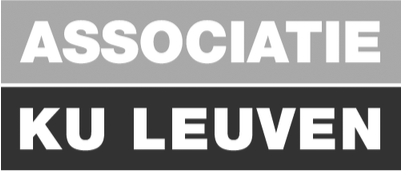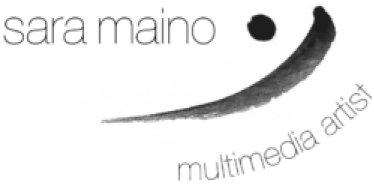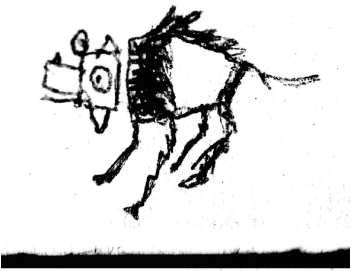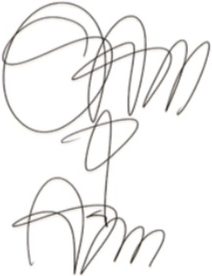The unlikely story of the village of Redu
At first sight, the quaint and quiet village of Redu, nestled deep in the fairy-tale landscapes of the Belgian Ardennes just under an hour south of Namur, is just like any enchanting countryside village. Closer inspection, however, reveals a village’s whose very DNA is indelibly tied to books, its 24 secondhand bookshops, papermaker, book binder, book charity organization and dozen of smaller artisan shops all linked, in one way or the other, to books making it an unlikely powerhouse in publishing and literary circles.
Writer: Marina Kazakova
Photographer: Eva Donckers
Historical ties
Redu is inextricably linked with the craftsmanship of books. This unique book colony came into existence 32 years ago. “Resident of Redu, journalist Noel Anselot once returned inspired from the Welsh book village Hay-on-Wye and decided to create his own book settlement in the gorgeous Ardennes region of Belgium,” says long-time resident of Redu Annie Kwasny who, as so happens in villages, also is the wife of the bookbinder Roland Vanderheyden. “He invited bookdealers across the region to set up their shops in some of the original buildings of Redu to keep the Luxembourgian look of the village. The outpost was officially declared a book town in 1984 after holding its first book festival. To cement Redu’s reputation as the first book town in continental Europe, it became twinned with Hay-on-Wye.” Digging a little deeper into the history of Redu reveals that its ties to the publishing industry go back further than thought, with the existence of a small printing house in Redu long before the village became known as a book cluster. “The small building was completely broken down and rebuilt at the open-air museum of Fourneau St. Michel, 25km from Redu. This proves that the art of printing was already long present in Redu,” says Johan Deflander, the owner of literary cafe La Reduiste. “Today, what remains is a small Museum of Printing situated on top of the Librairie Ardennaise that shows some print presses used in the province of Luxemburg back in 1760.”


Redu’s bookbinding master Roland Vanderheyden
When you walk into the small binding shop on Rue de Hamaide, you’re immediately struck by still lives of books, papers and leather – this is evidently where books are born and reincarnated. Lievin Vanderheyden founded L.Vander heyden & Fils in 1929 in downtown Brussels with his son Henri Vanderheyden — fond of gilding — later took the business over. Roland Vanderheyden joined the bindery when he was 15 and became the owner in 1986, stepping in for his father, Henri, who had run it for over 40 years. “My grandfather started the bookbinding business out of pure passion for literature,” Roland says surrounded by the debris of type trays and books in progress. What’s fascinating about bookbinding is that the process hasn’t changed much through the centuries. Much of today’s work involves binding legal and closing documents for area law firms. Other Vanderheyden projects include books for embassies, notary archives, college dissertations, genealogies and the Holy Books. “Some people still cherish them,” admits Roland, holding an oversized old history book of 1485 with a disintegrating leather cover. “It is invaluable, someone might pay a dime for it at a flea market, but memories are priceless. This old copy might take a few months to restore,” he says. Hand-made bookbinding involves about fifty steps, some requiring a few seconds and other more than one, two or three hours (like unbinding and sewing…). Once the pages are assembled, Roland’s wife Annie sews them together. From that point, Roland does nearly everything by hand, including trimming, rounding, backing, cutting the cloth (or leather), gluing, binding, covering, titling and, finally, casing the book. When asked how long he had practiced to become a master craftsman Mr. Vanderheyden’s reply is quintessentially philosophical: “You never stop training”. “But, of course, to be able to start working at the binding shop, I had to go through 12 years of everyday evening bookbinding school. The process is tedious, but it is worth it. The mystery of reincarnating a piece of history is something very special. We once counted all the books my family has binded through years, and we’d be able to tour the world 27 times with the total. What we, bookbinders, contribute to history extends far beyond skills and techniques.” Over the years, Redu has emerged as a brand and become synonymous with book culture. Financial times, though, do not help much. Artisans are wary of their future. “The new generation has rejected bookbinding and is branching out to other professions. My kids, for instance, won’t continue this company. Unless the government can provide incentives, the profession might soon get lost to technology,” confesses Vanderheyden.


The village’s cultural development is in the hands of non-profit «Redu, Village du Livre» formed in 1985 and currently managed by Manu Hougardy. “We do our best to grow our book community. Along with the local government, we set up an annual program of events to deliver a diverse and rich offering of cultural and social happenings such Easter Book Festival, The Night of Books, Festival of Ardenne Legends. We meet more than 100 000 visitors each year, not bad for a village of a few hundred people”, smiles Pascal Grognard, administrative assistant of «Redu,Village du Livre».


Redu’s handmade paper maker
Books don’t grow on trees. Although this might come to a surprise to most smartphone-wielding urbanites, craftspeople actually need to put raw materials into them for our reading pleasure. Consequently, paper makers are essential for book production. A native of Redu, Rene Lefer (60) spent more than half his life mixing paper fibers and pulp with water, draining all the water out, flattening it into thin sheets and drying it out. “This is how it was done for almost 2000 years,” he remarks. “By hand. One sheet at a time”. Since 1988, Rene makes his own paper, using recycled paper, plant fibers, egg-boxes, jeans and vegetables as material. “The eye and the hand take it all in, even when we’re not aware of it,” he says. On the walls of his sun-filled workshop, large size portraits of Noel Anselot, who long ago hired young Rene as a housekeeper and a gardener and inspired him to make books and handmade paper. The stone-paved road behind the window was eerily silent except for the occasional laughter from one of the neighbouring book cafés. Francoise Ceron, an artist who moved to the area of Redu for the sake of its atmosphere and is one of Rene’s regulars, purchasing handmade paper for her impressionist watercolours, invites us over to La Reduiste for a coffee. We followed Francoise to take a sip of literature at the literary café ‘nestled in the middle of this time-honoured settlement.


Literary café “La Reduiste”
La Reduiste is one of 24 secondhand bookshops of the village that has a particularly interesting variety of publications for sale. “A substantial amount of books were inherited from the previous owners,” says Anthe “The rest is our own collection which grew throughout the years.” Today, its business mostly involves selling books, hosting art events and serving vegetarian cuisine. For Netherlands-born Anthe Vrijlandt and her Belgian partner Johan Deflander, a couple who spent almost two decades in Africa and got to know the Continent inside out, settling finally in Redu was a return to their sources. “Redu is a place to meditate, to absorb a distinctive scent of thousands of leather-bound books and energies of hundreds of authors,” confesses Anthe. In 2015 the adventurous couple moved back to Belgium with the intention of finally settling down and start a project of their own. Their accidental visit to the book village of Redu was a fateful one: the duo was so infatuated with an old bookshop La Reduiste which was on sale at the time that a few months later the family decided to take it over. After an extensive reconstruction, they opened the doors of the renewed and retooled La Reduiste in summer 2015 together with several partners. “The aim was to create a modern, welcoming, healthy and thoughtful atmosphere,” says Anthe. And it seems to have succeeded, with the veggie book cafe now a firm fixture on the local circuit. Johan’s approach to business is photographic. In less than a year at La Reduiste, Johan used all the tools and techniques of the craft – scenography, directing, montage – to considerable shape the café’s identity. Sipping his second or third espresso, he delves into the story of the couple’s initiative. “La Reduiste opened during an interesting time, the time when genres, styles and services converged. Indeed, by now in the 21st century, we have well-established business forms that we easily identify whenever we are exposed to them. We immediately recognize shops, cafés, galleries, concert halls when we see and hear them. We even classify each of them into various categories or genres, such as bookshops, jazz cafés, photo galleries, etc. But how do we deal with the fusion of these business forms? Increasingly, it becomes harder and harder to define and classify a business or concept. Think about this for a moment – how do you classify a convergence of a veggie café, a bookshop, an art venue and a b&b? What do you call it? We call it La Reduiste,” says Johan. Constructive nonviolence is an essential part of La Reduiste’s philosophy. They play their part in the fight against animals enslavement for instance. “Our cuisine is strictly animal, book & eco-friendly and is based on the idea that in order to make life better, a person must first recognize every other being as their own self,” says Anthe. “Our bread is home-baked by one of our neighbours who’s been doing it for family and friends for decades now. Main dishes, cookies and deserts are made by myself, out of plain and healthy ingredients. And our books are quality secondhand copies at affordable prices.” And that in itself is a good enough reason to head on down to the fascinating village for a literary late-night.


Redu’s “Books to Africa”
“Books to Africa” (Des Livres pour l’Afrique), a Belgian non-profit since 2009, is not accidental in Redu and perfectly reflects the cultural policy of the book village. The organization collects French-language books from around Belgium and delivers them to African schools, libraries, universities, rural areas where the presence of books is rare, but necessary. The organisation set up a filing system in Wallonia and Brussels where benefactors submit books for temporary storage. The coordination center is located in Redu. “From here, 3 times a year, books start their long journey to Africa. We’ve delivered more than 500 000 books since 2010”, says Pierre Yves, a coordinator of LIAF. It is known that Redu is a town with one foot planted proudly in its past. What is realized after visiting the village is that its other foot is striding into the future almost as swiftly as the ships fulfilled with books sail every year from Belgium to Africa.
Bookbinder Roland Vanderheyden68, rue de Hamaide – 6890 Redu reliure-redu.com Paper maker Rene Lefer
90 Les Boucats – 6890 Redu Bookshop & literary café La Reduiste
36, rue de Prairie – 6890 lareduiste.be









